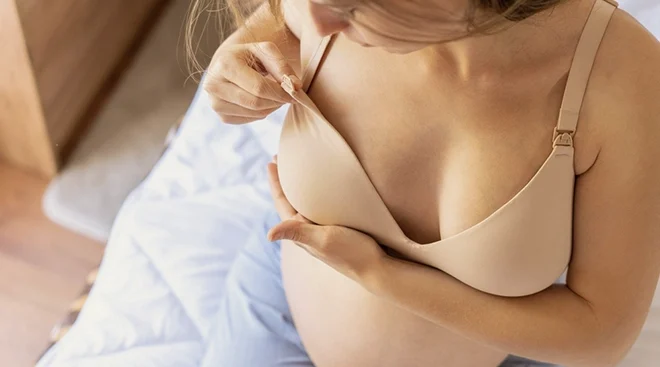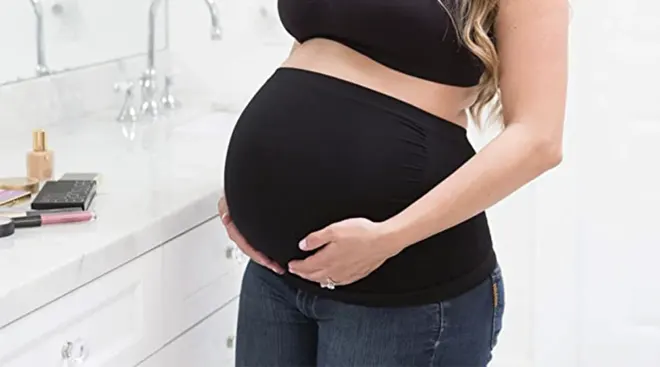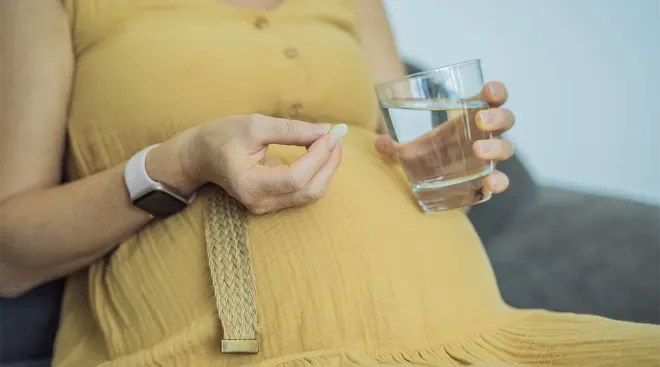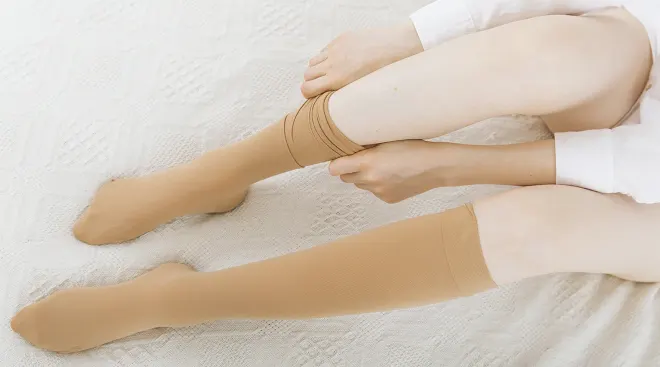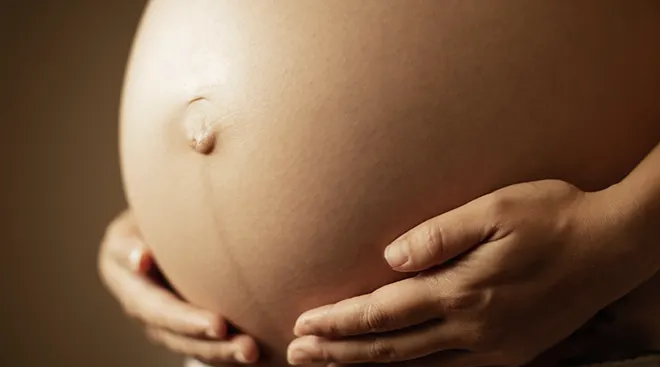
8 Ways Breasts Change During Pregnancy
Pregnancy comes with an assortment of interesting—and sometimes surprising—body changes. Your skin stretches, your belly button expands and your breasts go through all sorts of transitions. But, while they may catch you off guard, breast changes during pregnancy are totally normal. So what can you expect for your breasts before and after pregnancy—and how will they look and feel in the postpartum phase once milk production has stopped? Here’s what to anticipate now and in the coming months.
You may notice breast changes during pregnancy pretty early on. “Breast changes can occur as early as the first trimester with some [amount of] sensitivity,” says Christine Greves, MD, an ob-gyn at the Winnie Palmer Hospital for Women and Babies in Orlando, Florida. “Sometimes women may have breast tenderness as one of the first symptoms of pregnancy.”
Yes, some breast changes in early pregnancy can happen around the four- to six-week mark, notes Matthew Carroll, MD, assistant professor of obstetrics and gynecology at Baylor College of Medicine in Houston. As for your cup size, Carroll says that “[your] breasts can begin to grow as early as 8 weeks.” That said, changes in breast size might not be noticeable until the second trimester.
Breast changes during pregnancy are par for the course. They’ll feel different and probably look a bit different too. And whether you’re self-conscious about these changes or welcome them as part of the journey, it’s helpful to know what to expect.
1. Enlarged breasts
Your pregnant breasts may become bigger than they were before you were expecting—and they may stay that way until after baby is born and you stop breastfeeding, if you decide to go that route. This growth is due to an increase in hormones, Greves says. This enlargement generally starts around the eight-week mark and continues throughout your pregnancy, Carroll says.
2. Breast tenderness
Among the normal breast changes in early pregnancy, it’s very common to experience tenderness, Greves says. You might notice this as early as 4 weeks. “Typically, [this] improves by the end of the first trimester,” says Carroll. If you’re uncomfortable, he recommends placing warm compresses on your breasts or taking acetaminophen. You may also want to size up your bra. “A well-fitted and supportive bra can go a long way in alleviating breast discomfort,” Carroll says.
3. A feeling of fullness
Your pregnant breasts can feel full at times. This makes sense, of course. After all, your breasts are growing throughout those nine+ months. Moreover, in the postpartum period, your breasts will feel full when your milk comes in, Carroll says.
4. Larger and more sensitive nipples
Along with breast growth and tenderness, you may also have larger and more sensitive nipples. This, Carroll says, can happen as early as 4 weeks—perhaps even before you realize you’re pregnant. Greves notes that warm compresses, a well-fitting bra and comfy clothing that won’t chafe can help alleviate any discomfort.
5. Itchy or dry breast skin
Your pregnant breasts may feel itchy and the skin around them might be dry. “This happens because the skin covering your breasts gets stretched out as your breast tissue grows,” Greves says. It can happen at any time during pregnancy, especially if you’re prone to getting dry skin. “A barrier product like lanolin or a moisturizing cream like Cerave can be helpful with itchy, dry or cracked skin,” Carroll says.
6. Darkened areolas
Don’t be surprised if you suddenly notice that your areolas look darker. That surge of hormones early in pregnancy can cause an increase in the production of pigmentation. Darkened areolas will typically persist during the postpartum period, especially if you’re breastfeeding. According to the American Pregnancy Association, you may also notice darkened veins around your breasts as a result of increased blood supply to the area.
7. Little bumps around your areolas
If you notice little bumps pop on your areolas as your pregnancy progresses, don’t be alarmed. These are called Montgomery’s tubercles; they’re small oil-producing glands that naturally lubricate your nipples and prepare them for breastfeeding.
8. Leaking colostrum
Some pregnant people will start leaking colostrum during pregnancy. According to the American Pregnancy Association, this can happen in the second trimester of pregnancy or any time after, although it doesn’t happen to everyone.
It’s also normal for your breasts to change after childbirth, regardless of whether you’re breastfeeding or not. “If you’re breastfeeding, your breasts will likely stay enlarged and feel full at times,” Greves says. Believe it or not, they may even get bigger.
Carroll says that if you aren’t breastfeeding, a dramatic decrease in pregnancy hormones will cause your breasts to start reverting back to their pre-pregnancy state. Once milk production stops, your breasts and nipples will likely go back to what they were like before pregnancy—more or less. The truth is, they may never look exactly the way they once did. One study found that almost 22 percent of women said they had smaller breasts after having a baby, while 35 percent reported having larger breasts.
Ultimately, Carroll says, there are “predictable” breast changes during pregnancy, but it’s important to remember that everyone’s experience is different. Of course, if you’re ever concerned about anything you’re seeing or feeling, don’t hesitate to talk to your doctor or midwife about your breast health or anything else.
Please note: The Bump and the materials and information it contains are not intended to, and do not constitute, medical or other health advice or diagnosis and should not be used as such. You should always consult with a qualified physician or health professional about your specific circumstances.
Plus, more from The Bump:
Matthew Carroll, MD, is an assistant professor of obstetrics and gynecology at Baylor College of Medicine in Houston. He received his medical degree from theIcahn School of Medicine at Mount Sinai in New York City.
Christine Greves, MD, is an ob-gyn at the Winnie Palmer Hospital for Women and Babies in Orlando, Florida. She received her medical degree from the University of South Florida College of Medicine.
American Pregnancy Association, Breast Changes During Pregnancy, 2023
European Journal of Cancer Prevention, Factors influencing breast changes after pregnancy, May 2013
Learn how we ensure the accuracy of our content through our editorial and medical review process.
Navigate forward to interact with the calendar and select a date. Press the question mark key to get the keyboard shortcuts for changing dates.
































